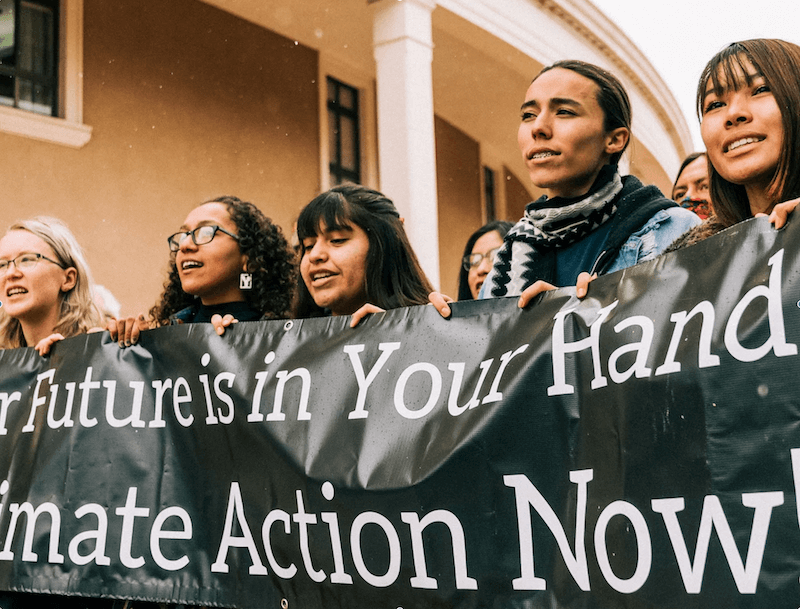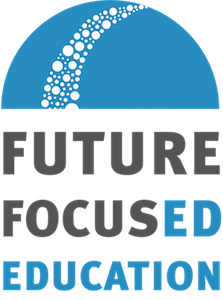Why Don’t We Value the Leadership Experiences Students Already Have?

The Reciprocity Project has partnered with Earth Care Santa Fe to launch the first-ever Reciprocity Project school in August 2022, located in Santa Fe, New Mexico. With Earth Care’s feedback, we changed the vision from an education sector-focused school, to a broader concept of community leadership.
We recognize that too often school “reformers” assume that their agenda is what’s best for a community. They cultivate relationships with traditional power brokers to create solutions they believe will “solve” community “problems''. That’s not how The Reciprocity Project operates. Earth Care provided much needed insight, because they live and organize in Santa Fe and know what’s best for the young people who live there. Through deep listening and reflection, we have changed the school model and name to Community Leadership High School (CLHS).
We invited Castille Aguilar, Campaign Organizer at YUCCA, an initiative of Earth Care, to talk to us about how we came to that decision, and what excites her about this new school model.
What excites you about a new Leadership High School in Santa Fe?
Community Leadership High School (CLHS) will be a great and much needed model. It's really important to acknowledge that educators are supposed to be community leaders. This school will be like smushing education and organizing together. I'm excited that our young people here in New Mexico are going to have the option to do a lot of hands-on work around things that they're really passionate about.
I think that the pivot [from an education-focused school to a community organizing-focused school] is going to make this project even more fruitful. You're not just putting up a school and hoping for the best. You are really listening to the community and folks that are in those communities, the people that are going to go to this school, and the people that work with them. So I appreciate your ability to adapt and shift by listening to what the community needs and really wants.
How did you get involved with community organizing?
I grew up here in Santa Fe, New Mexico. In high school my friends and I were involved in Earth Care’s youth leadership development program called Youth Allies which is focused on youth organizing, especially the South side of the city. Then I went to college and got my degree in environmental studies in Florida.
When I came back to New Mexico, I helped co-found and co-organize Youth United for Climate Crisis Action (YUCCA) as a campaign organizer and helped to plan the climate strike—it was really amazing to see what had come out of all of that and what the young people had really pulled together. It’s been a great journey. I love organizing and I think it's invaluable in communities to get youth involved.
When I came to this work, I had no idea what was going on in my community, to be honest. I knew about Los Alamos National Labs, I knew that we had a coal plant here, and that wealth was not distributed to the South side—but that was pretty much the extent of my knowledge. I didn’t know much because we don't talk about these kinds of issues in school.
What’s different about the Community Leadership High School model?
The idea that educators will be involved in the community beyond working with students in the classroom—I can't even tell you how big that is. It’s really important that we make sure to hear the voices of our young people. Too many adults say, "Oh, they're not engaged. They're not mature enough. They don't really know what's going on in the real world.” Time and time again we love to disprove that statement because we know it’s not the case.
Focusing on activism in the community, being engaged in politics, and structuring a school to urge students to have a voice and to be the leaders in their communities is huge. Traditional schools don’t encourage that enough. Bringing community organizing work into schools will be a different way to prepare students for careers in activism, and give them life experiences where they can be leaders. In my work I see that students are ready to share their voices and their opinions, but right now they are usually silenced. This school is an opportunity to be creative outside of the typical school structure.
What kind of experiences will students have?
In New Mexico, most students of color don't have their experiences validated. They need to hear: “Your experiences and knowledge are unique, and it deserves to be uplifted.” The intention at CLHS is to combat institutional racism within the education system. These are things that we don't normally talk about in school, which are very important as an organizer. The school should take advantage of the fact that a lot of young people come in with leadership experiences within their own families, and they have done work outside of school that a traditional school doesn’t ask about.
Also, a lot of school curriculum is whitewashed. Our communities are full of people of color and we need to look within the community for knowledge. Discarding our own local wisdom is absurd to me. Young people will be able to make their own decisions on what they are passionate about and want to do. The school will help guide and aid young people to become leaders in their own communities.
How will positive youth development happen at CLHS?
We all get stuck in our own little bubbles with what we know, what we feel comfortable with, and the school would help you get out of your comfort zone and think about things differently.
The reality is, when we're talking about leadership, it is not comfortable. You have to make space for touchy subjects. For example, in New Mexico, people who support oil and gas fight back when you say it’s a bad thing. You have to be willing to have hard conversations about it. You might encounter somebody that upsets you, and you have to develop people skills. When you're organizing, you have to be able to talk to people because that’s the heart of the work.
What do you think about the theory that “students are successful because of where they come from, rather than in spite of it”?
When we talk about community and leadership, it's really important to embrace where you come from, who you are, as opposed to suppressing it. You have to acknowledge that your community has value. We need to make sure that students feel comfortable with themselves and their communities—and the school needs to make space to talk about that.

